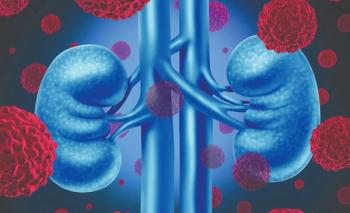
Hossein Borghaei, DO, MS, Talks Current Research Trends in Lung Cancer

CancerNetwork® sat down with Hossein Borghaei, DO, MS, to talk about coming research involving immunotherapy for patients with lung cancer.
CancerNetwork® spoke with Hossein Borghaei, DO, MS, of the Fox Chase Cancer Center and Thoracic Malignancies Chair for the journal ONCOLOGY®, about how investigators are gaining more information to help treat patients receiving immunotherapy. Borghaei also emphasizes the need for more insight regarding molecular information for understanding which patients benefit from treatment.
Transcript:
There are a lot of data coming out that are going to be relevant, and whether we can call them research trends right now or not is a bit difficult. What I mean by that is in a patient population for whom we use immunotherapy, or patients who don’t have molecularly driven tumors, the big question has always been how do you identify patients who are truly benefiting from immunotherapy? We know PD-L1 can be one biomarker, but we all realize that it is not as perfect a biomarker as we want it to be. We see patients with high PD-L1 who don’t respond necessarily all that well, or patients with low PD-L1 expression will respond well.
There’s a lot of work being done regarding molecular determinants of response in immunotherapy, for instance in genes like STK11 or KEAP1. That has a couple of implications, one emphasizes the fact that we do need to participate in these broader next-generation sequencing panels for our molecular testing because these computations might not appear to be significant right now. However, 6 months from now, there could be publications that can help us figure out whether there is relevance to some of these, so that’s number 1.
Number 2, as we gain more molecular information and genomic data on lung tumors, we might be able to find other signatures that would help us better determine whether somebody is going to benefit from checkpoint inhibitors or not. That’s a trend that I have seen, and I think there are more data coming on that. We are also looking into farther defining the resistance mechanisms that we see with the currently available checkpoint inhibitors. We tend to divide those patients into 2 categories. We have patients who, unfortunately, have virtually no response to checkpoint inhibitors, meaning you do the first couple of CT scans and the cancer is already progressing. These are what we have labeled primary-refractory patients. In the other group, we have patients who do seem to benefit from checkpoint inhibitors, at least initially, but then, unfortunately, the cancer progresses. Those are patients who we think have developed within the tumor microenvironment a secondary resistant mechanism. When you think about it, even logically, there has to be 2 different tumor [types] and there has to be something [done] about that. What determines primary from secondary refractory [disease] is a bit of an unknown, but there is a tremendous amount of research [that is currently] ongoing.
What to do about these tumors might be different because, again, if the mechanism of resistance is different, you can imagine that a tumor that is. [If a tumor is] primary refractory to checkpoint inhibitors, it might need a different combination or approach than a tumor that initially responded and now is progressing. I could be wrong, you could find something that works in both categories, but logically thinking about them, those mechanisms should be different.
That’s a very robust area of investigation. The difficulty here is that the data sets are somewhat small, there are a couple hundred patients from one center and a couple hundred from another center, and sometimes the data don’t agree. Putting these things together and trying to come up with a comprehensive look is where we are right now. It’s definitely a growing body of literature concentrating on that, and I think it definitely deserves attention.
Newsletter
Stay up to date on recent advances in the multidisciplinary approach to cancer.



















































